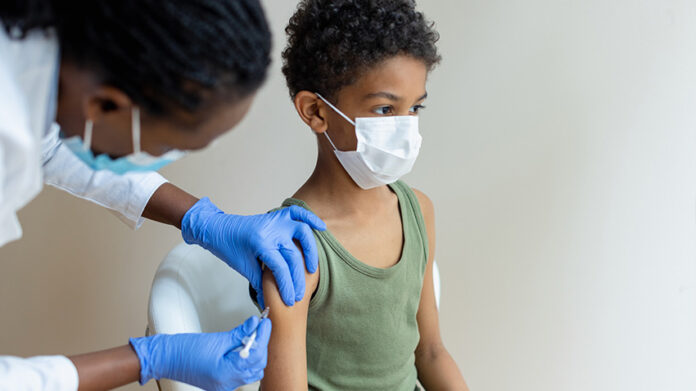
By Orville Williams
The Ministry of Health is partnering with the Pan American Health Organization (PAHO) to celebrate the 20th year of Vaccination Week in the Americas, and the message for this year is simple – get all your shots.
Since the Covid-19 pandemic took over our daily lives more than two years ago, attitudes toward vaccines, not only in Antigua and Barbuda but across the world, have dramatically shifted.
Prior to Covid, some anti-vaccine sentiment stemmed from concerns that jabs given at childhood were linked to autism – claims that have been refuted by authorities like the US Centers for Disease Control and Prevention (CDC) – but the ongoing pandemic has raised such scrutiny to new levels.
And while some medical professionals will take comfort in the fact that vaccine awareness has increased as an indirect result, the polarisation of what is a public health issue is not sitting well with many.
“We had parents and [other] individuals who were fearful of bringing out their children for their regular vaccines. Some people actually believed that the Covid-19 vaccine was in our regular vaccines and that is just not possible.
“So, it took a lot of us to really push the education and try to dispel the myths that are out there. We even had assistance from the Ministry…to help us dispel the myth that the Covid vaccine is so detrimental,” remarked Latoya Mussington, Acting Public Health Nurse at the Gray’s Farm Clinic.
Mussington was speaking about Vaccination Week, for which the theme is “Are you fully vaccinated? #GetAllYourShots”, during an appearance on Observer AM yesterday.
She reminded that children should get their first set of vaccines at two months old with further sets up to the age of five, and then again at age 15 and 25, depending on what age they received their last shots.
These include the age-old MMR (measles, mumps and rubella) vaccine, the DT (tetanus toxoid and diphtheria, children’s dose) vaccine and the OPV (oral polio vaccine).
In addition, she urged persons who are unsure of their vaccination status to make an effort to find out, and get up to date with their shots, if necessary.
“Sometimes elderly persons didn’t get their vaccines in those days, so they can come into the clinic and check to see if they are up to date and get fully vaccinated.
“If you can’t find your card, you can still come into the clinic where your parents would have taken you as a child; we will check our records to see if we have any information there for you. If we don’t, then we start [your vaccine regime] over to make sure you have all of your vaccines,” she said.
And although attitudes toward vaccinations have been hit by Covid misinformation and subsequent hysteria, Mussington expressed optimism about getting things back on track.
“Yes, we did see a decline in the uptake of our regular vaccines within the past two years, but we are hopeful that we’ll be able to break it this year, turn things around and bring us back to where we normally are,” she said.
Vaccination Week runs this year from April 23 to 30, as PAHO joins with the countries and territories of the Americas in urging everyone to get up to date with their shots.
